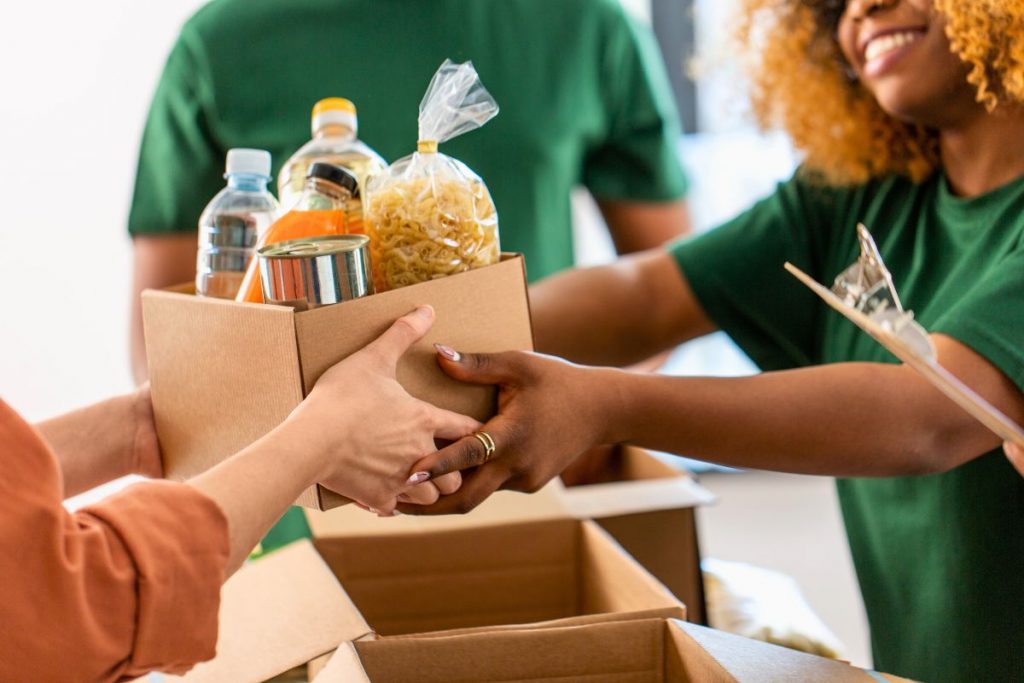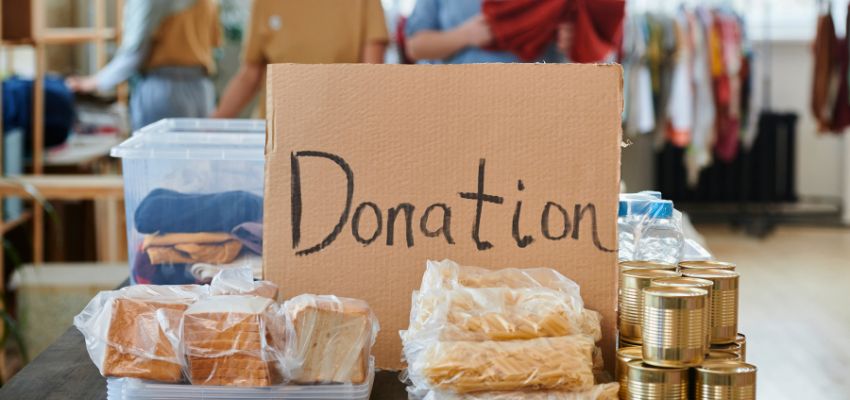Top 10 Most Requested Items for Homeless Individuals

Published November 26, 2025
When supporting people experiencing homelessness, we often think of food and shelter. While vital, a deeper need often goes unnoticed—one that affects daily life and dignity. It’s more than survival; it’s about reclaiming a sense of self. Providing the most requested items for homeless individuals isn’t just charity—it restores normalcy, well-being, and recognition.
In this article, we’ll explore the top 10 most requested items for homeless individuals and explain why each is important. Learn how you can make a real difference by donating effectively—your support can transform lives. Take the next step to help.
Why These Items Matter
Making a donation is a powerful act of kindness, but making an informed donation can change a life. Understanding why these items are needed is the first step toward providing support that’s both helpful and empowering.
The Reality Of Homelessness And Everyday Needs
Living without stable housing creates daily challenges beyond food or shelter. It means managing life without basic resources for care, safety, and comfort. Imagine lacking a safe place for belongings, clean socks to prevent infections, or a way to keep warm and dry in the rain. Meeting these needs provides stability. It lets people focus on bigger goals, like finding work or securing housing.
How Non-Food Items Support Dignity, Health, And Safety
Non-food items are crucial for maintaining dignity, health, and a sense of self-worth. Hygiene products (soap, toothpaste, deodorant) help individuals feel clean and presentable, boosting confidence for interviews and social interactions. Clothing, blankets, and first-aid kits protect against harsh weather and minor health issues. These donations help people feel human and cared for, a powerful source of hope.
The Top 10 Most Requested Items For Homeless Individuals
Focusing support on the most in-demand items ensures your donation provides immediate, practical help.
Socks And Underwear
These are frequently requested but rarely donated. People often walk long distances, making clean socks vital to prevent blisters, fungal infections, and trench foot.
Fresh socks and underwear provide comfort, dignity, and prevent health problems. These essentials greatly improve daily comfort and long-term well-being.
Donation Tip: For hygiene, always donate new socks and underwear in original packaging. Shelters need all sizes for men, women, and children.
Clean Clothing
Access to laundry facilities is rare for those experiencing homelessness, making clean clothes difficult to maintain. Living outdoors or in shelters also leads to faster wear and tear.
Clean clothing is essential for hygiene and self-esteem. Presentable clothes matter for interviews, services, and a sense of dignity and belonging.
Donation Tip: Donate gently used, seasonally appropriate clothing without rips or stains. Prioritize durable, layerable items like t-shirts, jeans, and hoodies.
Personal Care And Hygiene Products
Public assistance rarely covers personal hygiene items, yet they’re vital for health and self-respect. For those without a home, accessing showers and basic toiletries is a major challenge.
Items like toothpaste, soap, deodorant, and feminine hygiene products prevent illness and skin issues. Feeling clean restores dignity and confidence.
Donation Tip: Travel-sized items are ideal for easy carrying. Consider creating small hygiene kits with a toothbrush, toothpaste, soap, shampoo, and a comb.
Sleeping Bags Or Warm Blankets
For people who can’t get a bed at a shelter, a sleeping bag or warm blanket is their only defense against the cold ground and harsh weather.
A sleeping bag or thick wool blanket provides insulation to prevent hypothermia. It also offers a small but crucial sense of personal space and security.
Donation Tip: Donate new or gently used sleeping bags rated for cold temperatures. Sturdy, dark-colored wool or fleece blankets are also very useful and durable.
Non-Perishable Food And Healthy Snacks
Shelters provide meals, but people often need portable food to sustain them between mealtimes. Non-perishable items are a dependable source of nutrition that don’t require refrigeration or complicated preparation.
Snacks like granola bars, dried fruit, or peanut butter crackers offer essential energy throughout the day, supporting someone through a long day or curbing hunger until the next meal.
Donation Tip: Opt for items that are easy to open and don’t require a can opener. Focus on high-protein, nutrient-rich options for lasting energy.
Winter Accessories (Hats, Gloves, Scarves)
In cold weather, exposure to the elements poses a life-threatening risk. Frostbite and hypothermia are constant dangers for those sleeping or spending significant time outdoors.
Warm winter accessories are essential for survival. Your donation of gloves, hats, and scarves directly protects those at risk by keeping their extremities warm, where heat is lost fastest. These items provide vital warmth and comfort to people exposed to harsh weather.
Donation Tip: Donate new or gently used winter items. Waterproof gloves and warm, thermal hats are especially valuable. Hand warmers are also a small, yet highly effective, donation.

Backpacks Or Sturdy Tote Bags
When your entire life is carried with you, a reliable bag is a necessity, not a luxury. A sturdy backpack keeps important documents, food, and personal items safe, dry, and organized.
A good backpack offers security and mobility. It lets individuals carry belongings without strain and protects them from weather and theft, providing peace of mind.
Donation Tip: Durable, adult-sized backpacks are best. Look for strong zippers and comfortable shoulder straps. Gently used bags are acceptable if in good condition.
First Aid Kits And Medical Essentials
Without proper care, minor cuts, blisters, and illnesses can quickly become serious. Access to basic medical supplies is often limited for those living on the streets.
Portable first aid kits with antiseptic wipes, bandages, pain relievers, and blister treatments prevent infections and manage pain. Donating these kits equips recipients to care for minor injuries before they worsen, showing your direct impact on their well-being.
Donation Tip: Assemble individual first aid kits in sealable plastic bags. Include various bandage sizes, antiseptic wipes, antibiotic ointment, and over-the-counter pain medication.
Identification And Documentation Support
Losing important identification like a driver’s license, birth certificate, or social security card is common for those experiencing homelessness. Without these documents, it’s nearly impossible to apply for jobs, housing, or social benefits.
Supporting programs that help individuals recover lost IDs is a high-impact way to assist. This service removes a critical barrier, empowering progress toward stability.
Donation Tip: This is usually a financial donation rather than a physical item. Consider giving to a shelter’s ID recovery program to help cover the fees for replacing these vital documents.
Sun Protection And Quality Water Bottles
In warmer months, dehydration and sunburn pose serious health risks for individuals experiencing homelessness, who often spend hours outdoors with limited access to shade or clean water.
Sunscreen prevents burns and lowers skin cancer risk. Reusable water bottles enable safe refilling, promoting hydration and health.
Donation Tip: Donate new, unopened sunscreen (SPF 30+). Sturdy, reusable water bottles are more practical and environmentally friendly than single-use plastic.
How To Donate Effectively
Finding Reputable Shelters And Outreach Programs
Give to established organizations with proven records. For example, Our Father’s House Soup Kitchen in South Florida provides meals, clothing, and hygiene essentials. Verify legitimacy through official websites, active social media, or charity watchdogs. A quick call or email checks current needs.
Checking Seasonal/Regional Needs
Needs vary by season and location. Heavy coats are crucial in cold climates; sunscreen and water bottles matter most in summer. Always check a shelter’s current wish list first.
Package And Deliver Items Thoughtfully
- Wash gently used clothing.
- Group similar items together (toiletries in one bag, winter accessories in another).
- Only donate new hygiene items.
- Call ahead to confirm delivery times.
Consider Non-Material Support
Gift cards, vouchers, or your professional skills can be as valuable as items. Additionally, connect individuals in need with food, shelter, or healthcare programs in your community.
Frequently Asked Questions
What are the most urgent items homeless individuals need right now?
Needs change with seasons, weather, and demographics. Check local shelters for up-to-date priorities.
Can I donate used items?
Yes, if they’re clean, functional, and in good condition. Some items, like socks, underwear, and hygiene products, must always be new.
Are monetary donations better than item donations?
Both are valuable. Items provide immediate help, while money offers flexibility to cover operational costs or urgent needs.
How can I ensure my donations reach those most in need?
Give to established, reputable organizations that distribute resources fairly and efficiently.

Supporting people experiencing homelessness is most effective when focused on the most requested items for homeless, such as socks, hygiene products, backpacks, and blankets, which enhance health, safety, and dignity. Donations, volunteering, advocating, organizing drives, or sharing information on social media are all impactful ways to help and build a more compassionate community.
Support Our Father’s House Soup Kitchen in Florida, serving the homeless since 1989. Donate essentials, provide hot meals, or volunteer your time to restore dignity and hope. Learn more at ofhsoupkitchen.org.
Donate To The Poor & Homeless Of South Florida
Our Father’s House Soup Kitchen has fed the poor and homeless in South Florida over 900,000 hot meals since 1993. Our tax deductible non profit organization also accepts and distributes donations such as clothing, toiletries, shoes, bicycles, and more. You can donate to help the poor and homeless through our website.

Reviewed For Factual Accuracy
Our team meticulously fact-checks all website content before publishing. Discover more about our website’s editorial standard here and the dedication we uphold.

About The Author
Meet writer Rei Bayucca, a graduate of Saint Louis University. Prepare to delve into insightful articles tailored to solve your most pressing problems. Rei has the knack for captivating you with expertly crafted content that will leave you craving more.
Correct Digital, Inc is paid by private donors to provide website digital marketing services to this non-profit organization.





